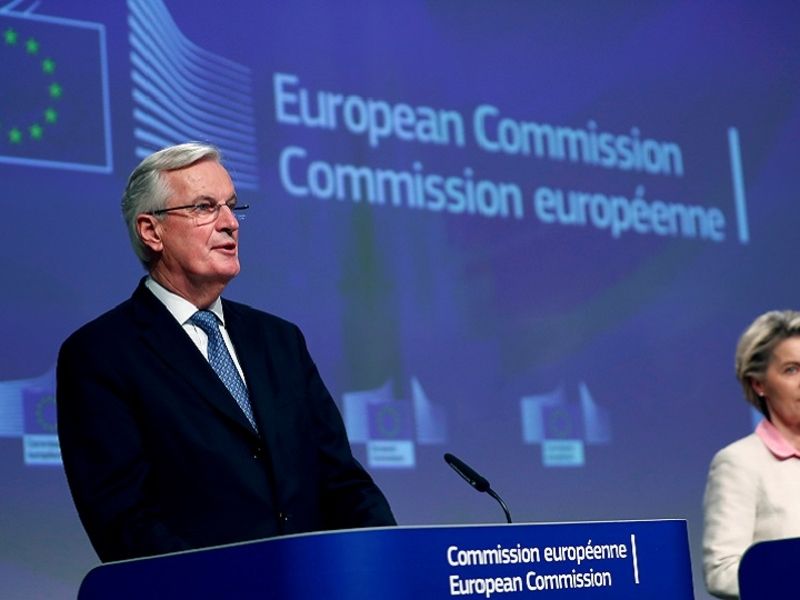
Automakers welcomed a post-Brexit trade deal agreed between the U.K. and the European Union that was finalized on Christmas Eve, days before Britain is due to leave the bloc’s single market.
The accord will complete UK’s separation from the EU and averts the threat of an acrimonious breakup on Jan. 31, when a 12-month transition period ends.
ACEA, the European auto industry’s lobbying group, said the agreement will allow the sector to avoid the “catastrophic” effect of a chaotic Brexit.
“The impact of a no-deal Brexit on the EU auto industry would have been simply devastating,” ACEA Director General Eric-Mark Huitem said in statement.
The agreement will allow for tariff- and quota-free trade of goods after Dec. 31, but will not apply to the services industry — about 80 percent of the U.K. economy — or the financial services sector.
It ends uncertainty that started for automakers with U.K. operations when Britain voted to leave the EU in 2016. Nissan, Toyota and Honda, which collectively build nearly half of the cars produced in the U.K., had warned they would have to leave Britain if trade barriers after Brexit made their UK operations unprofitable.
Automakers will be studying the fine print of the deal to see how it affects “rules of origin,” which specify that about 55 percent of the overall value of cars is produced locally to avoid tariffs.
ACEA said it cannot make a full assessment of the implications of the deal until all the technical details have been made public.
“Only at that stage will it be clear if the deal fully reflects the interests of EU auto manufacturers and their supply chains,” it said.
Major challenges still lie ahead because trade in goods will be heavily impacted by barriers to trade because of new customs procedures that will be introduced on Jan. 1, ACEA said.
About 3 million vehicles worth 54 billion euros ($66 billion) are traded between the EU and the U.K. annually and cross-Channel trade in automotive parts accounts for almost 14 billion euros, the group said.
Ford Motor Co. said the accord will provide stability as the industry transitions to new technologies.
“It is now important to understand the detailed rules of origin that will apply and to create as smooth a transition as possible by maximizing flexibility as businesses adjust to the new trading environment,” Ford of Europe President Stuart Rowley said in an emailed statement.
The UK auto industry association, SMMT, called for a phase-in period to allow businesses adapt to the new rules. “We await the details to ensure this deal works for all automotive goods and technologies, including specifics on rules of origin and future regulatory co-operation,” SMMT CEO Mike Hawes said in a statement.
Bloomberg and Reuters contributed to this report